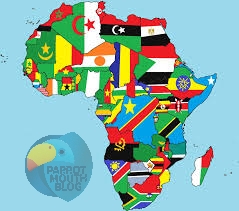To consolidate democracy in the region, the West African Elders Forum (WAEF) has urged African leaders to place citizens’ welfare, peace, and security at the center of governance. In Abuja, participants at the ‘State of Democracy’ webinar hosted by WAEF, an Initiative of the Goodluck Jonathan Foundation (GJF), provided this recommendation in a statement released by its Communications Officer, Mr Wealth Ominabo.
The topic of the discussion is “Making sense of democratic reversals in West Africa.”
The participants analyzed the obstacles to democratic governance in the region and how to advance democracy in the face of a growing trend of coups and unconstitutional government change. In addition, the speakers at the virtual meeting exhorted governments, regional and sub-regional organizations to invest more in citizen-centered initiatives that would serve as a buffer against threats to democracy.
In addition, they advocated for the strengthening of democratic frameworks in nations to ensure accountability and ensure free and credible elections. The assessors noted that a decline in the region due to poor governance had resulted in frustration and a lack of trust between citizens and the government.
They called for a reconsideration of democracy on the continent in light of the contemporary realities of its citizens. In her contributions, former Gambia Vice President Fatoumata Tambajang attributed democratic reversal in the region to political leaders’ disregard for democratic norms and inability to keep political promises.
“It is time to reconsider democracy in our current context. First, what are the factors contributing to the decline of democracy?
“The situation in the Sahel is complicated due to the fact that civil officials are unwilling to respect constitutions and civil institutions. In addition, they are not prepared to fulfill their democratic promises.
“The majority of our leaders believe that after soliciting votes and winning at the polls, they neglect to fulfill their commitments to the people.
“Citizens are becoming increasingly cognizant and expressing that they are weary of voting without seeing results.
“They are stating that they want respectable lives, food in their homes, security, and competent civil servants who can deliver services.
“They assert that they want equal opportunities and gender equality,” Tambajang stated.
Additionally, Mr. Remi Ajibewa, former Director of the Department of Political Affairs, Peace and Security at the Economic Community of West African States (ECOWAS) Commission, suggested that ECOWAS should place a greater emphasis on its citizens than on its incumbent presidents. Ajibewa highlighted the numerous efforts made by ECOWAS to protect democracy in the subregion.
“We anticipate civilian coups that take the form of referendums, popular insurrection, military-assisted transition, and constitutional review following the election.
“It’s not that ECOWAS has not performed well. It is a perception problem.
“Citizens on the continent view ECOWAS as an organization more concerned with securing the regimes of incumbent presidents than with advancing the interests of the people.”
“ECOWAS needs to move from ECOWAS of the government to ECOWAS of the people,” he said.
Ajibewa added that preserving democracy on the African continent required a collaborative effort. He exhorted all parties involved to protect and advance democracy in the region.
“We all have a role to perform, from civil society to member states to ECOWAS, AU, and the United Nations.
Ajibewa stated, “We must mobilize to strengthen the institutions of member states in order to have a peaceful and inclusive electoral system.”
Mr. Moussa Kondon, executive director of the Sahel Institute for Democracy and Governance, urged ECOWAS to redouble its efforts to safeguard democracy in the subregion. During the webinar, Kondon, who was also a panelist, stated that with ECOWAS, it was always negotiation after negotiation while people suffered.
“Because of globalization, individuals have greater access to information and are better informed than in the past.
“ECOWAS must proactively engage and uphold its relevant instruments, especially those promoting democracy and good governance,” he stated. (NAN)









62 Comments
generic motilium
motilium generic
over the counter lasix pills
motilium for breastfeeding
lasix brand name cost
сайт gama casino
https://airfull.ru/forum/viewtopic.php?f=34&t=4675
Gama Casino — это не просто платформа для азартных развлечений, это своего рода арт-галерея игрового мира. Наши разработчики тщательно отобрали лучшие игровые автоматы, чтобы вы смогли наслаждаться невероятно качественной графикой и увлекательным геймплеем. Гама Казино — это место, где сливаются воедино элегантность и азарт, создавая неповторимую симфонию азартных эмоций.На страницах Gama Casino вы сможете играть бесплатно и наслаждаться моментом, пока удача раскрывает перед вами свои карты. Это не просто онлайн-казино, это гавань для тех, кто ценит азарт и комфорт. Гама Казино откроет вам двери в мир, где реальность переплетается с виртуальностью, а вы становитесь хозяином собственной удачи.
[url=http://vermox.trade/]vermox mexico[/url]
[url=https://propeciatabs.skin/]where can i get finasteride[/url]
[url=https://diclofenac.party/]how much is voltaren gel[/url]
[url=https://diclofenac.party/]where can i buy voltaren tablets[/url]
furosemide 20 mg over the counter
propecia 1mg tablets uk
prescription albuterol
finasteride 1mg nz
vermox canada price
accutane in uk
amoxicillin capsules from india
motilium for sale
albuterol generic inhaler
lasix water pill 20 mg buy no prescription
can i purchase diflucan over the counter
furosemide 40 mg daily
lasix 12.5mg cost
toradol online
online med pharmacy
bactrim 160 800 mg tablets
metformin hcl
toradol tablet price
how much is lexapro
diflucan 500 mg
propecia brand coupon
motilium price
where can i buy vermox online
valtrex no prescription price
can you buy amoxicillin over the counter canada
where to buy glucophage
amoxicillin amoxil
where to buy motilium
toradol pain
strattera 18mg cost
order valtrex online uk
trazodone 15 mg
clonidine for ptsd
pharmacy online track order
buy cheap nolvadex uk
diflucan prescription cost
nolvadex otc
diflucan medicine pill
how much is toradol
where to buy lexapro online
where can i buy motilium
order motilium online
buy motilium without prescription
legit mexican pharmacy
buy metformin us
how much is voltaren tablets
price of strattera
voltaren 2018
buy strattera online pharmacy
trazodone hcl
vermox usa
pharmacy shop